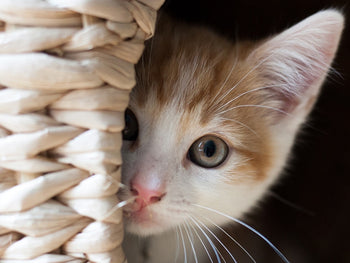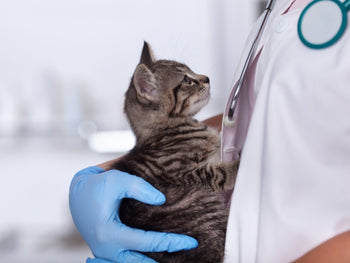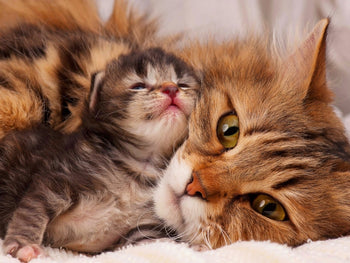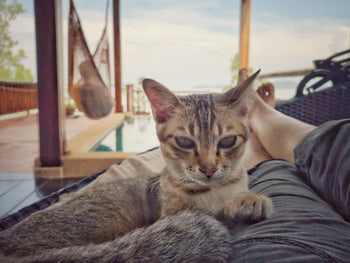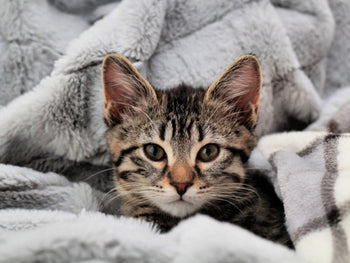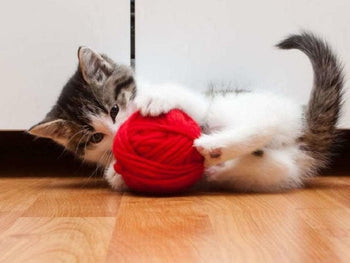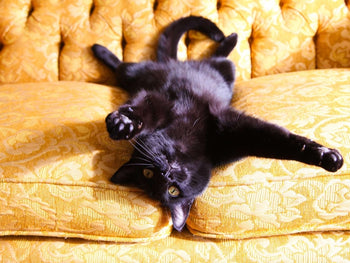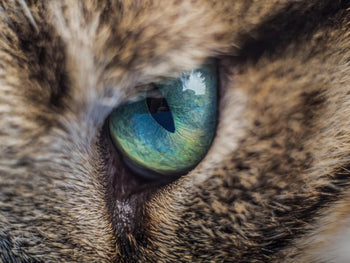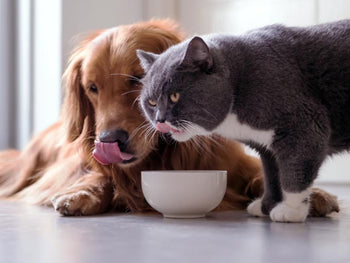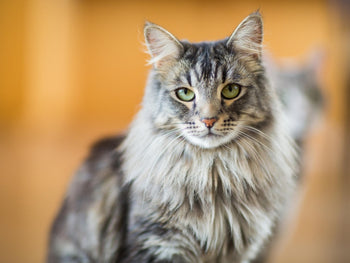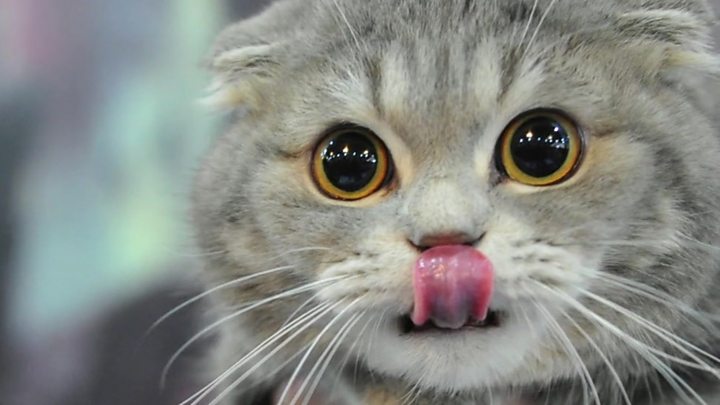
As with their owner, cats suffer from stomach aches once in a while so vomiting in cats is often treated as less than an issue. Considering the quirky characters of the average cats, your fluffy friend would even vomit at his/her own will for no apparent reason at all. That being said, certain medical conditions could cause a cat to vomit, therefore, a vomiting cat should receive special attention. If your pet happens to throw up and the cat vomit smells like poop, there is a very good chance that something is going on. But what do you need to do in such a situation? Should you take your cat to the vet or just settle for some medications?
If you wish to know more about the issue of "cat vomit smells like poop" including causes, treatments, and prevention, this article is for you. The following information contains everything you should keep in mind about digestive difficulties in cats and proper courses of action. Overall, cats vomit more easily than most pets but as long as you keep a close eye on them, the situation should improve. Simply put the contents down below to good use and your pet would start to feel better in no time.
Vomiting: Why Does It Occur
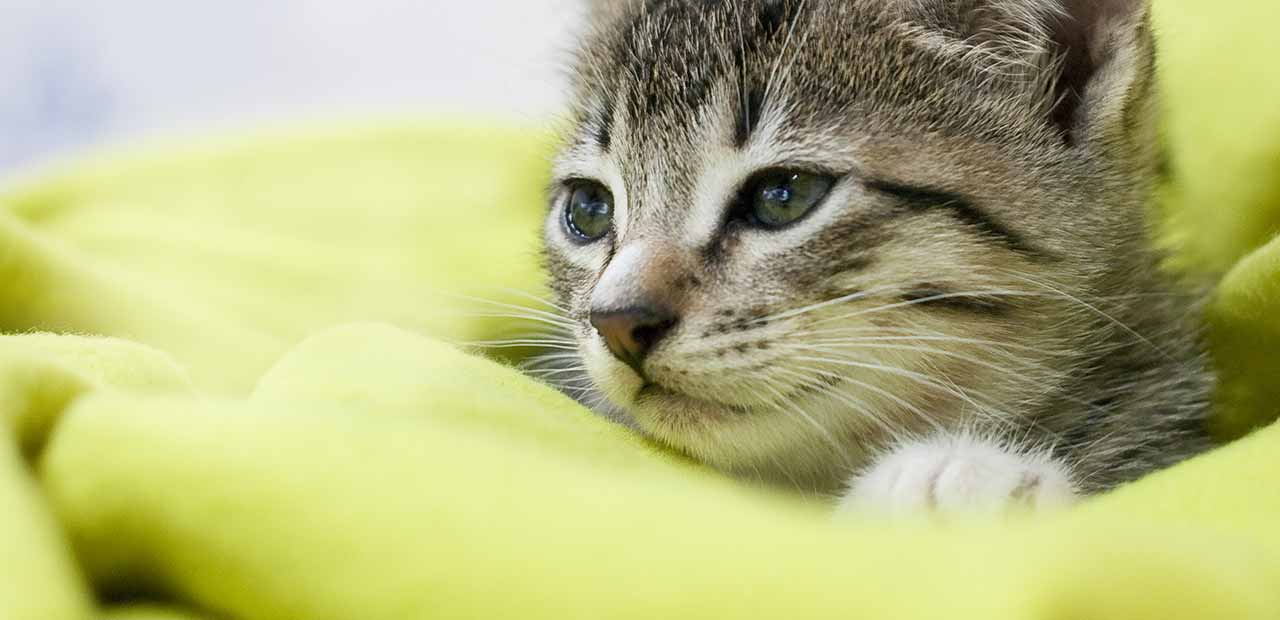
When it comes to vomiting in general, human and cat are more or less similar. Once the stomach of your pet detects indigestible materials or anything that causes substantial irritation, the vomiting sequence should begin. As cats are rather sensitive creatures, there are a lot of things that could cause them to just throw up everywhere all of a sudden. In a couple of cases, the primary culprits are hairballs that the cats ingest by mistake while grooming themselves daily. Allergy might be at fault too, especially if the pet often reacts negatively to certain foods, drinks with scents.
"So why cat vomit smells like poop anyway?" you wonder. First, you have to understand that poops are in essence solid/semisolid remains of foods that bacteria in the intestine could not break down further. If the partially digested foods in the stomach got pulled out for some reason, the smell would be unpleasant but not exactly similar to poop. That means when you manage to conclude that your cat vomit smells like poop, its stomach is in serious trouble. Most of the time, Gastroenteritis is what you're dealing with but it's hard to figure out what causes it in the first place.
Since it's impossible to precisely diagnose the condition of a vomiting cat without professional assistance, schedule an examination with a qualified vet at once. That is the best way to determine the current situation as well as types of treatments your pet should receive. In any case, it's generally unwise to buy and give your cat unprescribed medications. At best, the medications would only take care of the clinical signs while failing to address the problem at hand. At worst, usage of unprescribed medications could complicate the diagnostic process and degrade the health of your already weakened cat.
Check us out for further astonishing cat tips & facts!
How To Treat Vomiting Cats

Important Note: Only attempt the following methods if your cat seems to be in a stable condition and he/she is not vomiting too frequently. Otherwise, visit nearby veterinary clinics and proceed to let the vet take over from there. If all homecare treatments fail to have effects and your pet keep vomiting, it's also a good idea to reach out to the vet.
-
Withhold Foods And Drinks Temporarily
There is really no use feeding your cat if it just throws up right after that so withhold food and water for at least 12 hours. In the case your pet only experiences mild irritation, the vomiting should come to an end once he/she expel the cause of the irritation. As your fluffy friend would still feel hungry and beg you for foods during the period, be firm and offer him some ice cubes occasionally. Aside from that, electrolyte solutions are excellent choices as well. When 12 hours pass and there is no sign of more vomiting, feed your cat small meals for around 2 days before returning to the regular diet.
-
Feed Each Individual Cat Separately
One of the ways that cats use to react to overfeed is vomiting which is common in multiple-cat environments.
Kittens race to gobble down the food and needless to say, they would throw up everything after a few exercises.
In order to escape such a predicament, it's strongly recommended that you feed your cats individually and keep the size of each meal appropriate. With a tee bit of luck, doing that should solve your vomiting problem for good. Take the tendency of your pet into account and all should turn out to be just fine at the end.
-
Experiment With The Daily Diet
Cats vomit if they are unable to tolerate certain foods such as dairy products, cereals, wheat, corns and so on.
As a result, change the daily diet a bit and see if your cat could accept the adjustments or not. Different cats have different tastes, you never know your cat is allergic to what type of food unless you test it out on your own. As always, it's widely advised to make changes in a gradual manner instead of switching the diet at once.
Take things at a steady pace so you could gauge the reaction of your pet and perform adjustment if needed.
Minimizing The Frequency of Vomiting: Tip And Tricks For Novices
As mentioned above, it's quite difficult to stop your cat from vomiting permanently but there are ways to minimize the number of throw up. For instance, vomiting rarely occurs in cats that get abundant amounts of water every day. One of the most common causes of digestive troubles is lack of hydration and by giving you cat enough water, the vomiting should be manageable. Moreover, refrain from giving out rich calorie treats, especially lactose-based foods as these are not well received by cats. Finally, consider purchasing cats foods that are designed to match the demands of sensitive stomachs.
For more Cat's Health Guides and various fun stuff, please visit Cattybox!
